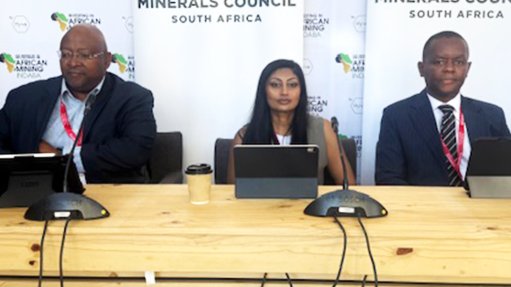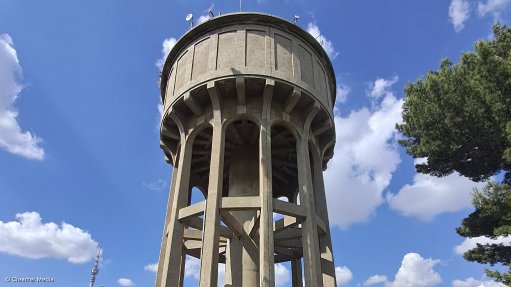WWF calls for business, nature platform in Africa to link dependency, custodianship
Global conservation organisation the World Wide Fund for Nature (WWF) Africa regional director Alice Ruhweza has called for WWF Africa and its partners to set up a business and nature platform through which businesses can help shape robust climate policies and advocate for nature.
About half of the world's gross domestic product is moderately or highly dependent on nature, according to the global finance organisation World Economic Forum's Global Risks Report, she pointed out during a November 29 briefing.
“Many sectors rely on direct extraction of or access to ecosystem services, such as healthy soil, clean water, pollination and stable climate for agriculture. Every sector is exposed to risks posed by climate change and biodiversity loss, whether this is directly or indirectly through disruption of supply chains and loss of markets,” she added.
Many businesses around the world, albeit a higher proportion in developed countries than in Africa and in other developing countries, have made commitments to sustainability, net-zero and science-based targets. Many companies, including those operating in Africa, invest in nature indirectly through corporate social responsibility initiatives or directly.
“There is good momentum, but we need to do more to move the needle. We need a business for nature coalition, and we are calling on governments to adopt policies that support nature,” she highlighted.
Protecting nature is an economic and moral imperative, and there is growing consumer demand for sustainable products and an increase in governments and investors asking companies how they are addressing their impacts on nature, she said during the WWF Johannesburg Living Planet conference.
“Rapid technology development is helping to make business activity more visible and this is the information we must use to make an equitable, net-zero global economy.”
NATURAL RELIANCE
Further, reports published by the United Nations (UN) Intergovernmental Panel on Climate Change during the past year have highlighted the critical role that nature is playing in mitigating the impacts of climate change.
“Nature has absorbed 54% of humanity’s carbon dioxide (CO2) emissions over the past ten years, so it is good to see countries recognise the importance of nature-based solutions in the final [twenty-seventh UN Conference of the Parties] COP27 cover decision,” said WWF Global Climate and Energy deputy lead Dr Stephen Cornelius in response to the outcome of the climate conference.
WWF South Africa senior climate specialist James Reeler added that, while nature helps to mitigate impacts of extreme weather and absorb emissions, nature was under retreat.
A global spike in CO2 levels of around 418 to 420 parts per million should contribute to more rapid plant growth, but this greening process is slowing.
“Nature is on the backfoot and still helping to save us. We are recognising the urgency and importance of ramping up efforts to support nature.”
Nature is an asset and all of human society, including business, fundamentally needs nature. However, the world is compromising its future ability to draw on these services, said WWF South Africa CEO Dr Morné du Plessis.
“It required an economic assessment of the importance of biodiversity to make everyone aware of the risks posed by the loss of biodiversity and natural services.”
University of Cambridge economist Professor Sir Partha Dasgupta conducted a review in 2021 titled 'The Economics of Biodiversity' in which he showed that economies rest on nature and that the environmental value of nature services to global society is around $150-trillion.
“These are free goods and services that have not been factored into the prices of products and, where inputs are not priced, it leads to waste,” said Du Plessis.
“We have to restore nature. We cannot only back off, we must actively increase the Earth's capacity to sequester CO2 and sustain humanity.”
The UN Convention on Biological Diversity (CBD) latest conference will be held in Montreal, Canada, from December 7. It is an essential component of the COP processes.
“The WWF and many global organisations are calling for 30% of all land and sea areas to be under some form of responsible protection by 2030. This does not mean exclusive national parks, but rather responsibly protected landscapes that include communities and commercial farmers in addition to formal protection of areas.
“To this end, we must talk about restoration efforts to support the recovery of biodiversity, which has seen a precipituous loss of 69% of wild populations since 1970,” Du Plessis emphasised.
The recognition of the importance of biodiversity and nature-based solutions is important, given the approaching UN CBD in Montreal, said WWF South Africa business development head Justin Smith.
“The world needs business to understand and mitigate the risks to their operations, quantify and manage their impacts and reliance on nature, and build a framework for business's role in supporting nature, while the world needs a commitment from the business community to tackle biodiversity issues and their impacts,” he said.
Article Enquiry
Email Article
Save Article
Feedback
To advertise email advertising@creamermedia.co.za or click here
Press Office
Announcements
What's On
Subscribe to improve your user experience...
Option 1 (equivalent of R125 a month):
Receive a weekly copy of Creamer Media's Engineering News & Mining Weekly magazine
(print copy for those in South Africa and e-magazine for those outside of South Africa)
Receive daily email newsletters
Access to full search results
Access archive of magazine back copies
Access to Projects in Progress
Access to ONE Research Report of your choice in PDF format
Option 2 (equivalent of R375 a month):
All benefits from Option 1
PLUS
Access to Creamer Media's Research Channel Africa for ALL Research Reports, in PDF format, on various industrial and mining sectors
including Electricity; Water; Energy Transition; Hydrogen; Roads, Rail and Ports; Coal; Gold; Platinum; Battery Metals; etc.
Already a subscriber?
Forgotten your password?
Receive weekly copy of Creamer Media's Engineering News & Mining Weekly magazine (print copy for those in South Africa and e-magazine for those outside of South Africa)
➕
Recieve daily email newsletters
➕
Access to full search results
➕
Access archive of magazine back copies
➕
Access to Projects in Progress
➕
Access to ONE Research Report of your choice in PDF format
RESEARCH CHANNEL AFRICA
R4500 (equivalent of R375 a month)
SUBSCRIBEAll benefits from Option 1
➕
Access to Creamer Media's Research Channel Africa for ALL Research Reports on various industrial and mining sectors, in PDF format, including on:
Electricity
➕
Water
➕
Energy Transition
➕
Hydrogen
➕
Roads, Rail and Ports
➕
Coal
➕
Gold
➕
Platinum
➕
Battery Metals
➕
etc.
Receive all benefits from Option 1 or Option 2 delivered to numerous people at your company
➕
Multiple User names and Passwords for simultaneous log-ins
➕
Intranet integration access to all in your organisation


















